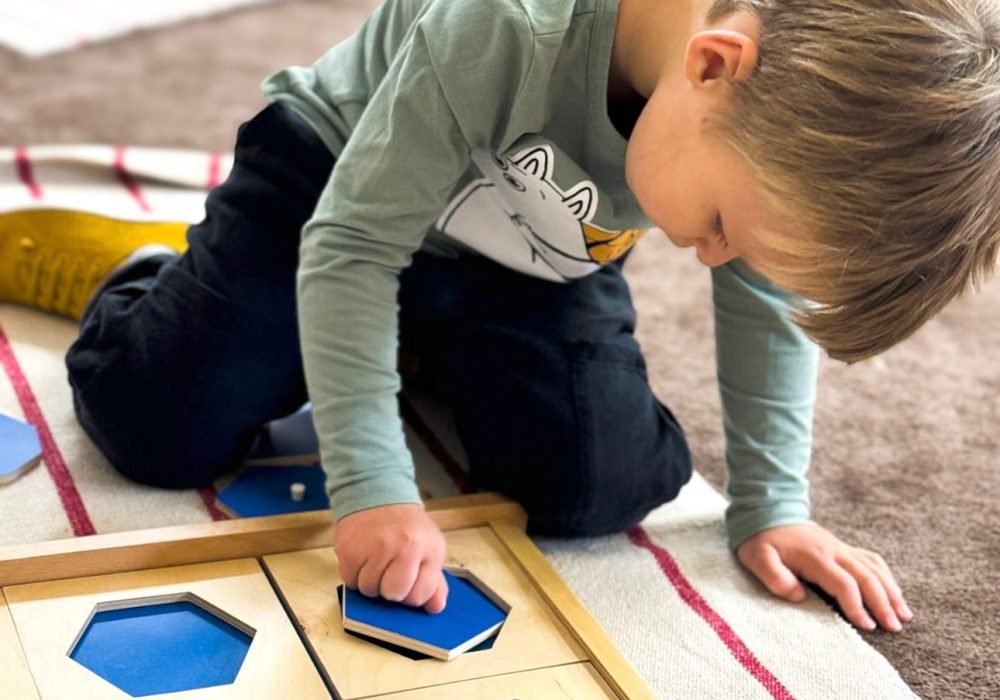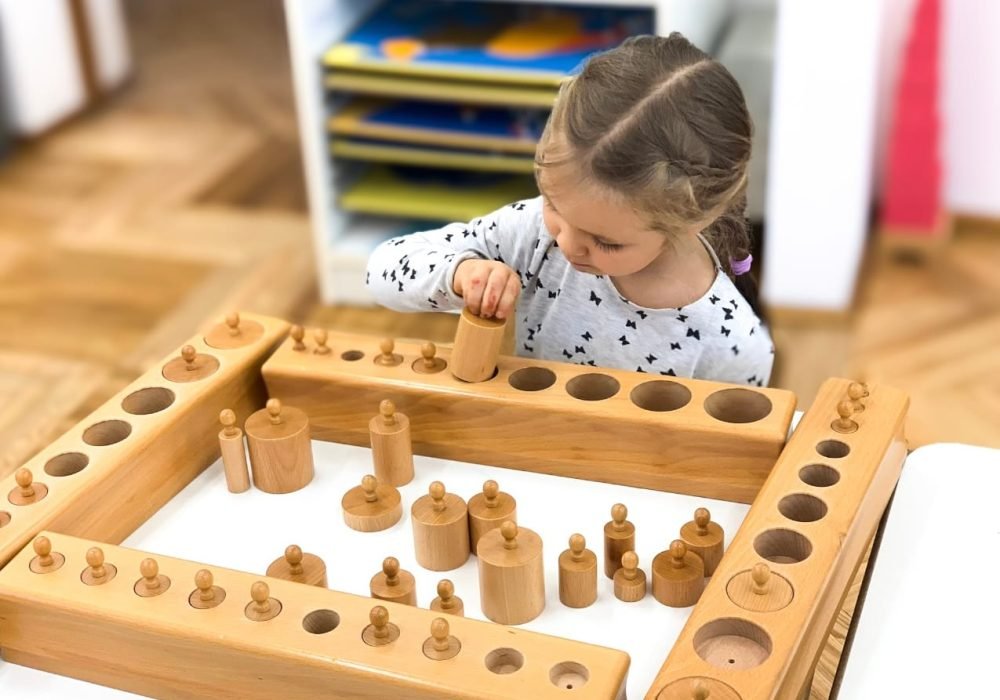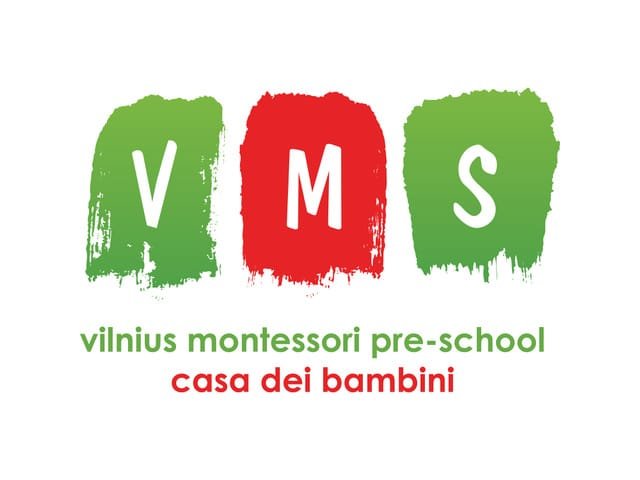How Do Montessori Materials Work?
Montessori materials are innovative, hands-on tools specifically designed to engage children’s minds, foster exploration, and promote independent learning. These materials are attractive, easy to use, and intentionally crafted to support a child’s development and learning. Together, they form the foundation of the Montessori Curriculum.
Each Montessori material focuses on teaching one skill at a time, allowing children to master key concepts through repetition and practice. As Dr. Montessori noted, “Nothing goes into the mind that does not first go through the hands.”
Children are introduced to these materials by a trained educator through a Key Lesson, after which they are encouraged to explore the material independently. Once finished, they return the materials to their designated spot in the prepared environment
The materials are presented in a carefully planned sequence, progressing from simple to complex, and are tailored to the child’s developmental stage and interests. This structured approach ensures a logical progression of learning, enabling children to build knowledge gradually and systematically.
What’s Unique About Montessori Materials?
- Hands-on learning tools that teach one skill at a time
- Designed with multiple learning styles in mind
- Build knowledge and skills through repetition and practice
- Made of natural materials and real-life objects
- Develop independence, fine motor skills, and concentration
- Learning outcomes discovered through problem-solving
- Designed for children to teach themselves
- Simplify abstract concepts
Montessori materials
Hands-On Learning
Montessori materials are hands-on learning tools that guide children to discover key learning outcomes through repetition and practice. Each material breaks down one key concept into simple steps that children master through hands-on exploration. This aspect makes the Montessori materials particularly effective, as they involve the hand, as well as the mind, in all learning experiences

Montessori materials
Control of Error
Montessori are designed with an inbuilt ‘control of error’ that is self-evident. This quality allows children to see their own mistakes and discover learning outcomes independently through repetition and practice. For example, the knobbed cylinder won’t fit in the incorrect hole, water may spill on the table, or there will be too many/too few objects at the end of a counting activity.

Montessori materials
Progression Order
In the Montessori classroom, the Montessori materials are arranged within their curriculum area and are displayed from left to right in progression order, from easiest to hardest. This logical sequence provides children with a clear pathway to learning as they progress through the Montessori Curriculum.

Montessori materials
Fine Motor Skills
Montessori materials encourage purposeful movement and exploration. This manipulative quality makes them highly beneficial at developing fine motor skills. These skills are essential components of a balanced approach to early childhood education as they encourage independence, concentration, and prepare children for real life.

Montessori materials
One Skill at a Time
Montessori materials teach only one skill or concept at a time. This allows children to deeply engage with the material as they discover, practice, and master the learning outcome at their own pace. Each material has been developed in the context of all the other materials to progressively build children’s knowledge and skills within each subject area.

Montessori materials
Auto-Instructional
Montessori materials are designed to be used without the help of an adult. This allows children to discover and master the learning outcomes of each material through repetition and practice independently.








 VMS Parent Handbook
VMS Parent Handbook  download
download VMS Academic calendar
VMS Academic calendar  VMS fees
VMS fees  Latvių G. 16A Vilnius 08123
Latvių G. 16A Vilnius 08123 +370 655 08414, +370 640 70875
+370 655 08414, +370 640 70875 admin@vms.lt
admin@vms.lt  Mon-Fri 11:30 – onwards
Mon-Fri 11:30 – onwards